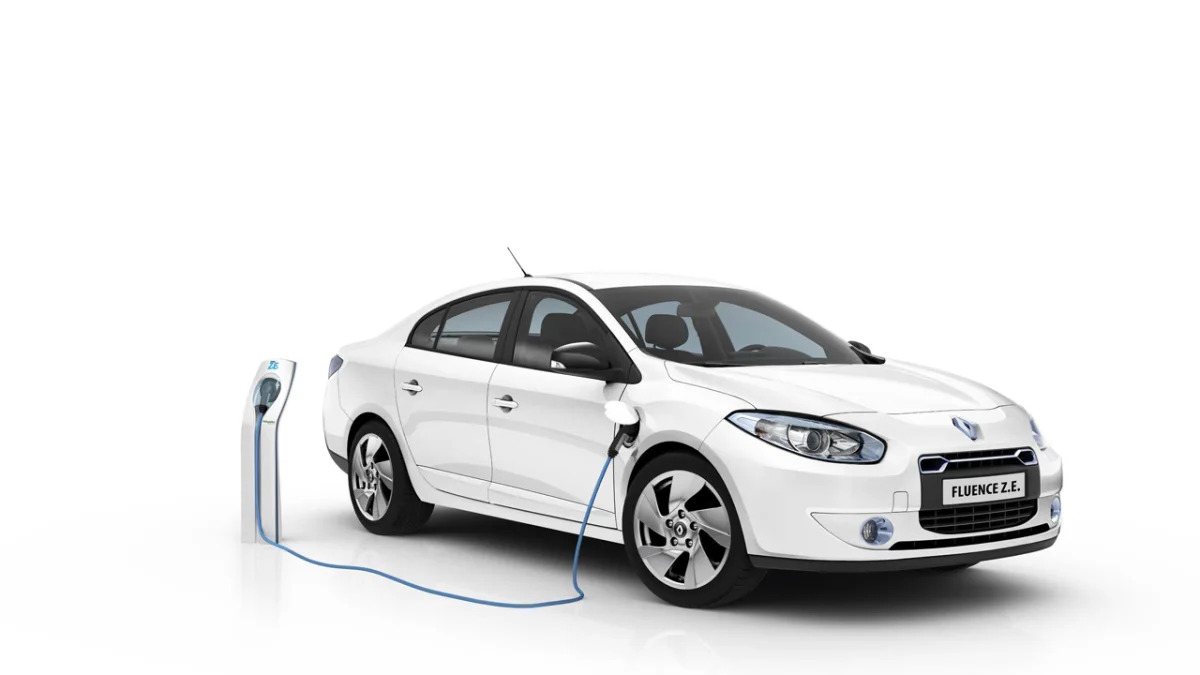When it comes to the environmental impact of producing electricity, Renault is probably hoping that things haven't changed too much over the past 21 months. That's because we're just now getting to see some numbers that the company was using almost two years ago.
The French automaker, which along with sister company Nissan has invested about $5 billion in electric-vehicle technology advancements, has released a previously internal report that compares the well-to-wheel environmental impact of a Renault Fluence Z.E. EV with Fluence models that run on gas or diesel. The report tracks the whole lifecycle, from vehicle production on through 10 years of driving (or, about 100,000 miles) and provides a stunning 116-pages worth of information. Granted, the report was written in October 2011, so the data isn't new, but we're glad we get a glimpse into what the company knew at the time.
Of course, the EV started at a disadvantage, emitting about 60 percent more of a carbon footprint before it even hits the road than the diesel and gas versions thanks, mostly, to the environmentally unfriendly batteries required. For those with some time on their hands, the 116-page report can be found here, and there's also a four-page independent review of Renault's testing methods, which were found to be legit.
The French automaker, which along with sister company Nissan has invested about $5 billion in electric-vehicle technology advancements, has released a previously internal report that compares the well-to-wheel environmental impact of a Renault Fluence Z.E. EV with Fluence models that run on gas or diesel. The report tracks the whole lifecycle, from vehicle production on through 10 years of driving (or, about 100,000 miles) and provides a stunning 116-pages worth of information. Granted, the report was written in October 2011, so the data isn't new, but we're glad we get a glimpse into what the company knew at the time.
In extremely boiled-down terms, Renault found that EVs indeed have less of an environmental impact than vehicles powered by fossil fuel, but the numbers change depending on where they are charged up. For example, the lifetime carbon footprint of a Fluence Z.E. driven in France had about half the carbon footprint of an EV driven in the UK. This is because of the UK's relatively dirty sources of electricity production. Compared to the ICE Fluences, that EV in France has about 40 percent of the carbon footprint taken up by a diesel-powered Fluence and less than a third of the carbon footprint of a gas-powered Fluence. The Fluence diesel's superior fuel economy, compared to the gas-powered version, was more than offset by the effects of the oil-burner's nitrous oxide emissions. The Fluence diesel gets about 53 miles per gallon, using the more lenient European driving standard, while the gas-powered Fluence gets about 35 MPG.The Fluence diesel's superior fuel economy, compared to the gas-powered version, was more than offset by the effects of the oil-burner's nitrous oxide emissions.
Of course, the EV started at a disadvantage, emitting about 60 percent more of a carbon footprint before it even hits the road than the diesel and gas versions thanks, mostly, to the environmentally unfriendly batteries required. For those with some time on their hands, the 116-page report can be found here, and there's also a four-page independent review of Renault's testing methods, which were found to be legit.








Sign in to post
Please sign in to leave a comment.
Continue